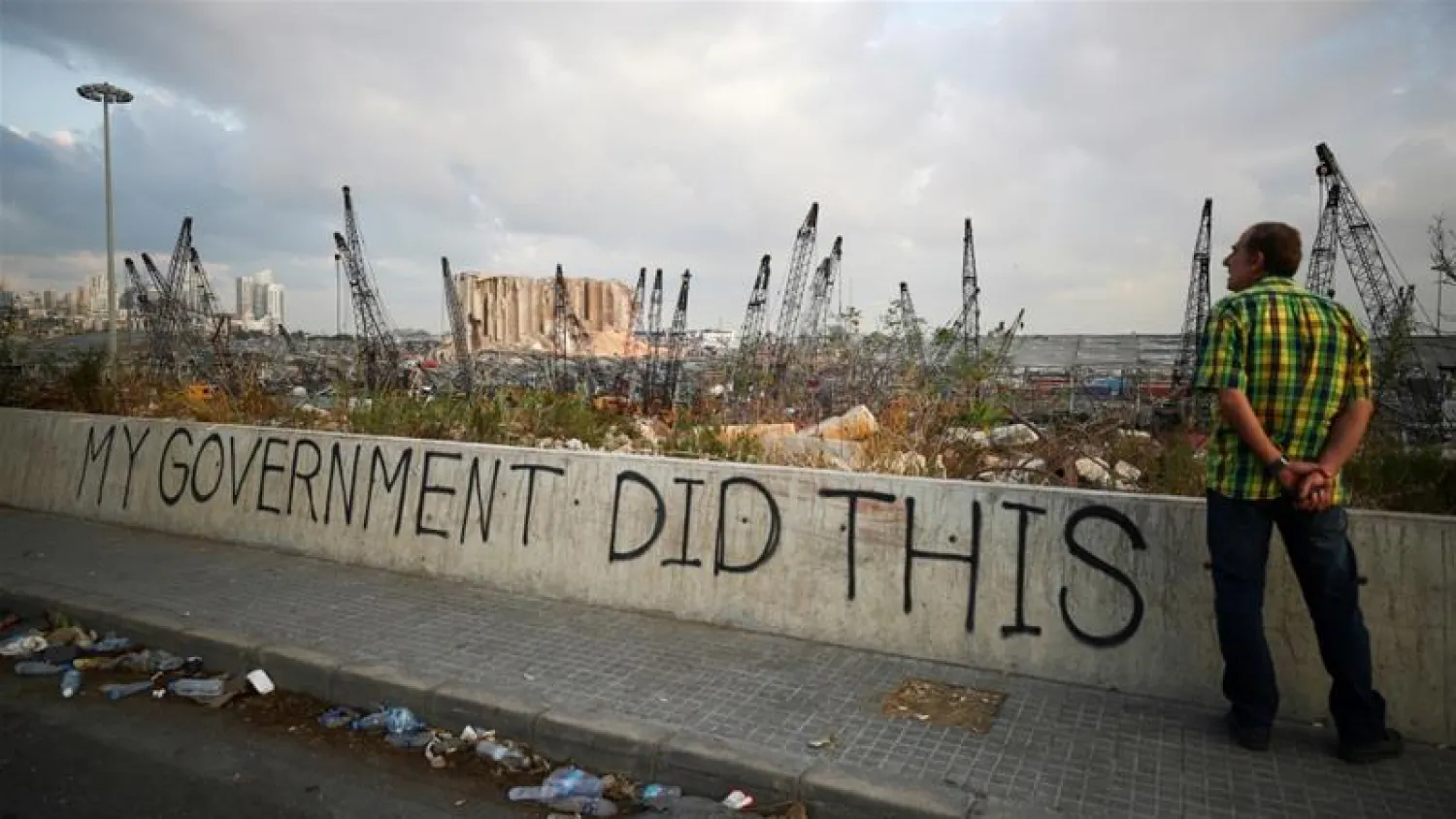One hundred days after the devastating explosion at Beirut Port, which left 200 people dead, more than 5,000 injured and thousands of families without shelter, the relatives of the victims await answers on those responsible for the disaster.
Faced with this bleak reality, the relevant judicial authorities presented a different approach, stressing that the investigator, Judge Fadi Sawan, was close to identifying the culprits.
In remarks to Asharq Al-Awsat, a senior judicial source said that Sawan took very important and difficult decisions that led to the arrest of 25 persons, including the Director General of Lebanese Customs, Badri Daher, former Customs chief Chafik Merhi, the director of Beirut Port, Hassan Qraitem, head of Land and Maritime Transport Abdel-Hafiz al-Qaisi, and the port’s security official, Brigadier General in Army Intelligence, Tony Salloum, in addition to senior personnel at the port.
Sawan also heard the testimonies of 53 witnesses, including the current and former ministers of public works, finance and justice, and current and former heads of security services.
The judicial sources explained that the investigation has followed two paths: “The first related to allowing the ammonium nitrate shipment to be stored at the port for seven years; and the second on whether the explosion was the result of failure and error or was a premeditated terrorist or security attack.”
The sources noted that the US Federal Bureau of Investigation (FBI) has estimated in its report the volume of explosive materials at 552 tons out of 2,750 tons that were stored in warehouse No.12, which left 16 km of radial damage. The US report seemed to rule out a terrorist act.
The Lebanese judiciary is counting on the French experts’ report, which is yet to be submitted, according to the judicial sources.
They noted that the French report “will be detailed in terms of determining the causes of the explosion, since the French explosives experts worked for a longer period of time, and undertook a comprehensive survey of the Beirut Port, the destroyed buildings and facilities, as well as the sea.”
The head of the Beirut Bar Association, Melhem Khalaf, who filed lawsuits on behalf of 664 victims, expressed concern over interference in the judiciary’s work to keep high-ranking state officials away from prosecution.
In remarks to Asharq Al-Awsat, Khalaf said: “This is an opportunity for the judiciary to regain self-confidence, restore people’s trust, and be free from any (political) pressure.”









